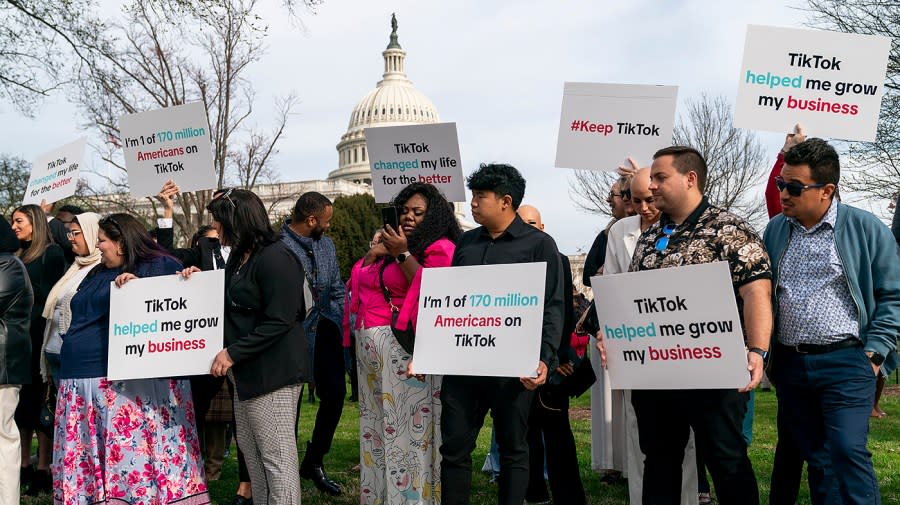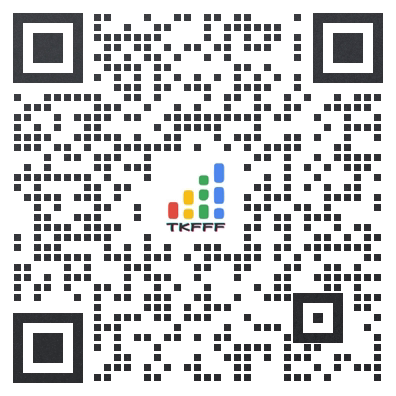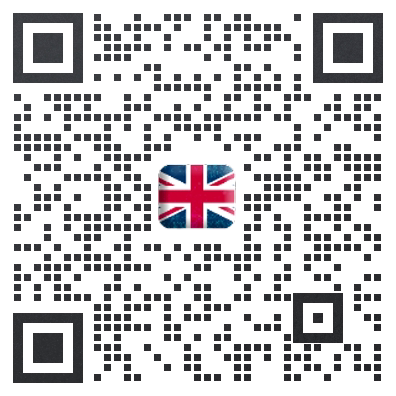TikTok faces toughest challenge yet with lawsuit against divest-or-ban bill

Facing its most significant threat yet to operate in the U.S, TikTok and its Chinese parent company ByteDance are looking to repeat their success in court at blocking other attempts to ban the app by arguing it violates the First Amendment.
The tech company filed a lawsuit this week challenging a recently signed bipartisan law that would force the company to divest TikTok or face a ban in the U.S. Lawmakers who support the measure said TikTok threatens U.S. national security because of Beijing’s strict control of Chinese tech companies.
TikTok argued in a complaint filed Tuesday against the Department of Justice that the law violates the First Amendment — an argument that has proven successful in its challenges to block other attempts to curtail use of the app in the U.S. under the Trump administration and in Montana.
But the new law, the Protecting Americans From Foreign Adversary Controlled Applications Act, is squarely focused on national security threats and includes other provisions beyond naming TikTok that may make the company’s challenge more difficult.
Sarah Kreps, the director of the Tech Policy Institute in the Cornell Brooks School of Public Policy, there have been “a number of efforts to dot the I’s and cross the T’s in terms of the constitutionality of this” since the first major effort to ban TikTok under the Trump administration in 2020.
“You see that with not just between 2020 and ‘24, but also between … when these proposals were advanced, and today,” Kreps said.
The law Biden signed late last month made its way through Congress unusually fast.
It received an overwhelming bipartisan vote in the House in March, less than a week after it was first unveiled by the top members of the Select Committee on the Chinese Communist Party.
The bill ultimately advanced out of the Senate when it was attached to a package of foreign aid bills and amended to give ByteDance more time to find a buyer for TikTok. Biden signed the bill soon after it reached his desk.
The bill seemed to build off previous efforts of bills targeting TikTok that failed to make it through Congress. Some efforts led by Republicans last year faced pushback from Democrats over singularly targeting one company. Another bipartisan effort in the Senate last year took a broader approach to give the executive branch power to designate other apps for consideration to be banned.
The Protecting Americans From Foreign Adversary Controlled Applications Act sought to fend off the weakness that stalled other measures. The bill gives ByteDance the ability to sell TikTok before a ban and names only TikTok in the bill, but also includes a procedure that would allow the president to designate other apps with ties to China, Russia, North Korea and Iran.
TikTok, however, still argues that the bill violates the First Amendment and singularly targets their company. TikTok also said that 360 days — the maximum time ByteDance has to sell the app before it would be banned — isn’t enough to for the company to find a new buyer.
“But in reality, there is no choice. The ‘qualified divestiture’ demanded by the Act to allow TikTok to continue operating in the United States is simply not possible: not commercially, not technologically, not legally,” the company said in the complaint.
The complaint added that even if a sale were “feasible,” the law would be an “extraordinary and unconstitutional assertion of power” and “allow the government to decide that a company may no longer own and publish the innovative and unique speech platform it created.”
TikTok’s First Amendment defense against the Trump administration and Montana ban attempts were successful. But the new federal law’s exclusive focus on national security makes it differ from its predecessors; the Montana law targeted TikTok over privacy concerns, including national security.
The federal government also has a leg up in terms of its power over national security responsibilities over Montana. U.S. District Judge Donald Molloy, in his ruling to block Montana’s law in November from going into effect, argued the state both did not prove the argument and did not have “constitutional authority in the field of foreign affairs.”
“It does pose different challenges,” said George Wang, staff attorney at the Knight First Amendment Institute at Columbia University.
The Knight First Amendment Institute has spoken out against the federal law and Montana’s.
“The core issue is that even no matter what the justification is, even justifications like national security, when a law infringes on the rights of millions of Americans, the government needs to have good reasons for the law,” Wang said.
So far, he said, the government has failed to make the case.
“We can imagine all sorts of reasons why the government might be interested in doing this, and there are all sorts of scenarios about national security concerns, but that’s not enough to justify a broad ban like this. The government needs to present real credible evidence that these harms are real and that this ban is actually going to address those harms,” he added.
Ahead of the vote on the bill, lawmakers in the House received a classified briefing from the intelligence community about potential threats posed by TikTok. Although some lawmakers who voted against the bill said it did not change their mind, the bill ultimately passed easily.
Kreps said that rare, broad bipartisan support puts power behind the alleged national security threats.
“You have a case where both parties, both houses in Congress, and the executive branch, are all saying with one voice that this is a national security threat. That acts in a way as evidence in itself, because it’s very unusual, given our polarized political climate for there to be this much unanimity,” Kreps said.
文章来源:Aol.
TKFFF公众号
扫码关注领【TK运营地图】

TKFFF合作,请扫码联系!






 闽公网安备35021102002035号
闽公网安备35021102002035号